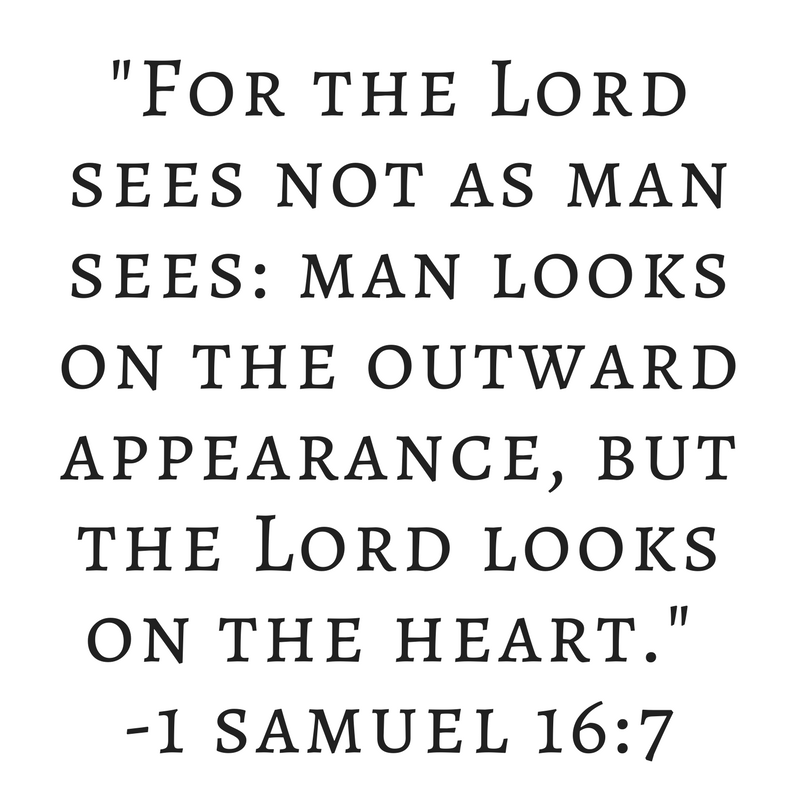
The Bible states that there are two ways to judge others. One way is to judge their motives, which is sinful. The other way is to judge their actions, which is right to do. Sadly, people often mistake what the Bible actually says about judging others by misapplying one of these truths.
Perhaps one of the most widely read passages of the Bible on judging others is Matthew 7:1-6. Let’s look deeper into this passage to better understand what the Bible really says about judging others.
The Bible Does Say It Is Sin to Judge Other People’s Motives (Matthew 7:1-2)
It is important to note that Matthew 7 is a part of Jesus’ Sermon on the Mount. If you were to read through Matthew 5-6, you would quickly see that Jesus is spending a lot of time talking about motives. Thus, it is no surprise that in Matthew 7:1-2 Jesus clearly states we are not to judge other people’s motives:
Judge not, that you be not judged. For with the judgment you pronounce you will be judged, and with the measure you use it will be measured to you.”
We know Jesus must be talking about motives here because Scripture never contradicts Scripture. In Matthew 7:5, Jesus explains that once we address our own sin, we are then to help people with their sin. Jesus would not tell people judgment is always sin but then tell people to judge. Clearly there are two forms of judgment, one focusing on the motives and the other focusing on the actions.
Matthew 7:1-2 also states that we are not to judge other people’s motives because then we are going back to a works based view of salvation. Throughout the Sermon on the Mount, Jesus was explaining that it was impossible for people to save themselves because even if they obeyed the law perfectly, their inner hearts and motivations were still sinful.
The Bible says we should not judge others’ motives because if God was to judge our motives and only save us based upon the inner righteousness we have on our own, we would be doomed.
The Bible Does Say Christians Are to Judge Other Christian’s Sinful Actions (Matthew 7:3-5)
Matthew 7:3-5 moves on from motivational judging and enters a new category: judging others’ sinful actions. It reads:
Why do you see the speck that is in your brother’s eye, but do not notice the log that is in your own eye? 4 Or how can you say to your brother, ‘Let me take the speck out of your eye,’ when there is the log in your own eye? 5 You hypocrite, first take the log out of your own eye, and then you will see clearly to take the speck out of your brother’s eye.”
Clearly Matthew 7:3-4 pop off the page to most readers. Here the Bible says we should be extremely careful when we are judging the actions of others. In fact, the Bible says that we should spend most of our time judging our own actions before judging other people’s sinful actions. We should all be noticing a log in our own eye (a lot of sin) compared to what we should be noticing in other people.
With that said, Matthew 7:5 cannot be ignored. Jesus didn’t say it is wrong to judge Christians when they have specks of sin in their lives. He didn’t say it was hypocritical to judge other Christians. He said it would be hypocritical if we didn’t first judge ourselves. Jesus then states that we should help remove specks of sin from our fellow Christians’ lives.
 This same principle can be seen in Paul’s letter to the Corinthians. He states in 1 Corinthians 4:4-5, “It is the Lord who judges me. Therefore do not pronounce judgment before the time, before the Lord comes, who will bring to light the things now hidden in darkness and will disclose the purposes of the heart.” The Bible says that God alone has the right and power to judge other people’s heart (1 Samuel 16:7).
This same principle can be seen in Paul’s letter to the Corinthians. He states in 1 Corinthians 4:4-5, “It is the Lord who judges me. Therefore do not pronounce judgment before the time, before the Lord comes, who will bring to light the things now hidden in darkness and will disclose the purposes of the heart.” The Bible says that God alone has the right and power to judge other people’s heart (1 Samuel 16:7).
However, in 1 Corinthians 5:12-13, when Paul is instructing the church on how to deal with a brother’s sexual sin, he states, “For what have I to do with judging outsiders? Is it not those inside the church whom you are to judge? God judges those outside. ‘Purge the evil person from among you.’”
In Corinthians 4:4-5 the Bible says not to judge others because it is referring to motives. In 1 Corinthians 5:12-13, the Bible says to judge other Christians because it is referring to external sins. A few quick qualifying points about 1 Corinthians 5:12-13:
- This Bible passage is referring to a person who claims to be a Christian. Christians are only to judge other Christians’ external sins, not the sins of unbelievers (1 Corinthians 5:9-11).
- The Bible passage is referring to a Christian who is in an unrepentant, ongoing sin (1 Corinthians 5:1-2). When a Christian repents of their sin, even if they must repent often, we are not to judge them. We are only to execute judgment on those who claim to be a Christian and yet refuse to repent of sin.
The Bible Says Not to Judge Others Who Are Unwilling to Listen (Matthew 7:6)
So what does the Bible say about judging others? Matthew 7:1-2 states we are not to judge others’ motives. Matthew 7:3-5 says we are to judge others’ sinful actions, but only when we are judging our own actions first and foremost lest we become hypocritical. Lastly, in Matthew 7:6, the Bible says we are not to give our judgments to others who are not going to listen:
Do not give dogs what is holy, and do not throw your pearls before pigs, lest they trample them underfoot and turn to attack you.”
Not everyone wants to hear what you have to say about their sin. Certainly there are times for people to become defensive. If someone’s actions are being judged unfairly, they have a right to defend themselves. If their motives are being called into question, again they have a right to resist this form of judgment. But all too often, when the church or other Christians confront another Christian who is blatantly sinning without remorse or repentance, this person gets angry at those who are judging.
Proverbs 9:8 explains , “Do not reprove a scoffer, or he will hate you; reprove a wise man, and he will love you.” 2 Timothy 2:24-25 says, “And the Lord’s servant must not be quarrelsome but kind to everyone, able to teach, patiently enduring evil, correcting his opponents with gentleness.” We do have an obligation to help people, but after we present our concerns gently and all they want to do is argue, we are then to stop rebuking them until they are ready to listen (2 Timothy 2:22, Romans 16:17).
The Bible Says There Is a Difference Between Judging Others’ Motives and Using Discernment
In closing, there is also a biblical difference between judging people’s motives and using discernment. The difference mainly occurs in the actions you take once you perceive the sins in others. If you pray for them, try to counsel them, or perhaps try to befriend them to help them with their poor motives, this is a healthy use of biblical discernment.
If, however, you sense a sin in the heart of another and then you accuse them, proclaim that you know for certain their motives are sinful, spread rumors, or start to despise them, then you are not using discernment but are merely being prideful and judgmental.
You may also like:
Get your copy of Basic Transformation (plus the study questions, which makes this a great eBook for small group Bible studies or personal devotional time) and access to all of our eBooks. It's completely free - my gift to you.
Type in your email address and a copy will be sent right to your inbox.


Hi Mark. First of all, thank you for your thoughts in regards to this topic. I woke up this morning really frustrated. I am tired of peoples’ comment “don’t judge me!”, which comes after they have voiced their opinion about a subject that one is provoked to either accept it as correct or not. A Recent example was an article written by a Christian mother who is telling everyone how to raise teenagers giving her own way of raising them as the correct way. I can not remember how many times she wrote: “do not judge me”…
I am very puzzled about this. I believe we have a responsibility to exercise sound judgment and not accept everything we hear or see as correct or even ok. I also believe we make thousands of judgments each day, which either lead to protecting us or destroying us and we have the responsibility as parents to teach our children young and old to do the same. But when everyone is calling ‘not to judge’ is totally disarming and frustrating. We become like feathers in the wind not being able to discern right from wrong; because to me when someone is telling ‘I am judging them’ or ‘not to judge’ them, it is like they are asking me not to judge whether they are right or wrong. That is extremely dangerous!
Thanks again
Roula G.
Thanks so much for your comments. And yes, I agree. We must always judge everything to see if it is true or not. And in matters of opinion, we can always extend grace and assume the best. I think the greatest misunderstanding regarding judgement is that people think the Bible condemns it completely, when in fact we are only told not to judge the motives of others. Thanks again for sharing.
Mark
Pastor Mark you have really been a
Blessings to me this morning. I had questions about judgeing others.
I was a very judgemental person.
But as I read you site this morning I realize that I had no right to judge anybody, because I to have done
Things that was not right .
I have hurt people by judgeing them
you think god has forgiven me . I’m now being called into to to be a
Prophet also and Evangelist
Thanks for your comments Mildred. 1 John 1:9 says if we confess our sins to God he will forgive us. It’s always painful when we feel convicted by sin but in the long term God does this because he loves us and wants to grow us.
God bless,
Mark
Man, this was really helpful in me correcting, teaching and rebuking. I was very confused, but this has cleared my doubts, and provokes me to change. I’m still confused though about James 5:11… but I’m gonna pray and ask God for understanding. Thanks b,
Very cool to hear. Yes, when we study the Bible on judgement, the first response should definitely be self-reflection. I think that was one of Jesus’ main points in Matthew 7:1-6.
God bless,
Mark
What’s the difference between motives and actions? Could not the person being judged be doing a certain action because of the motive behind it? Please explain. Thank you.